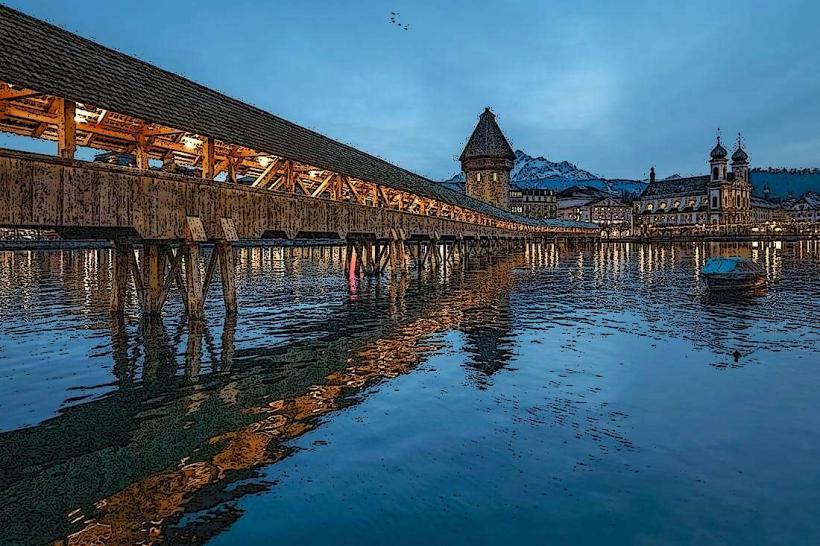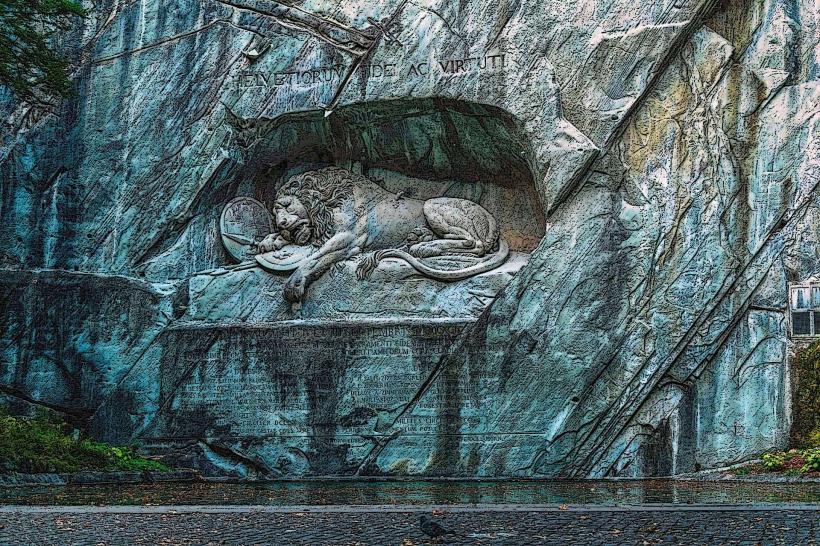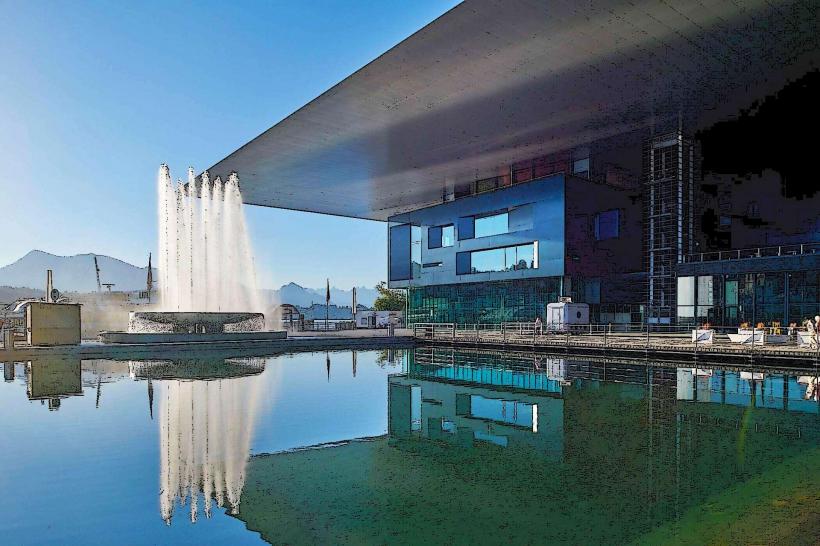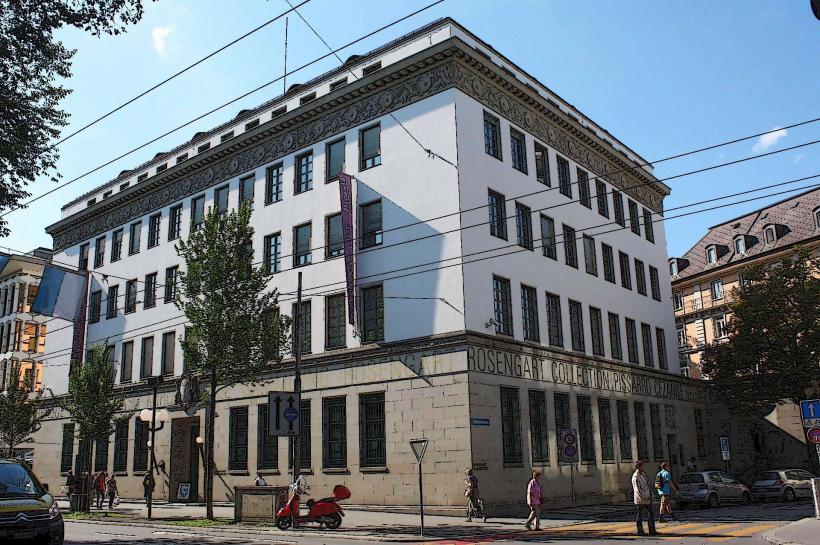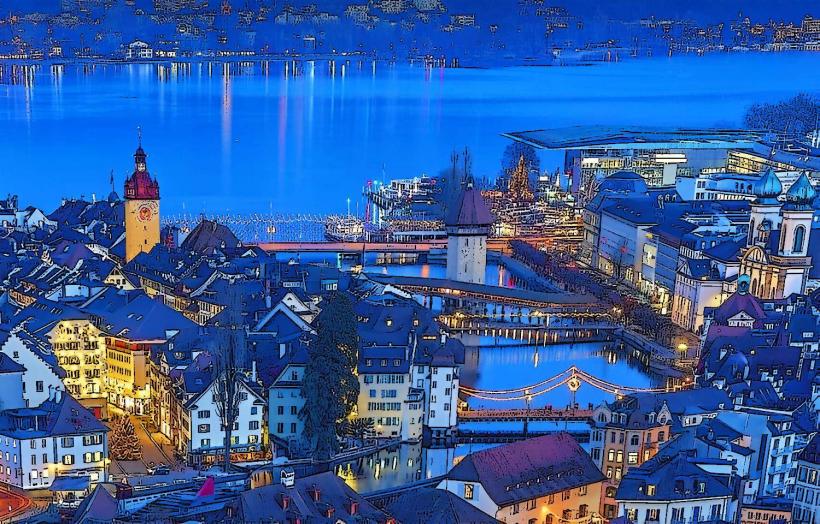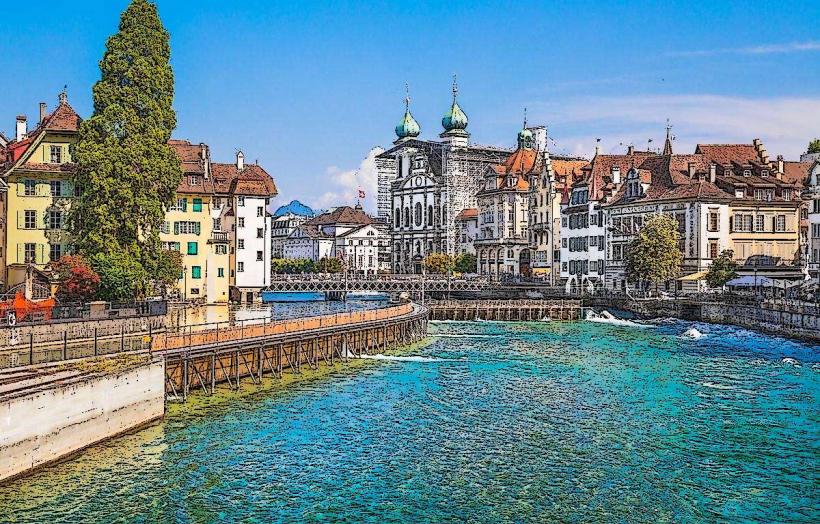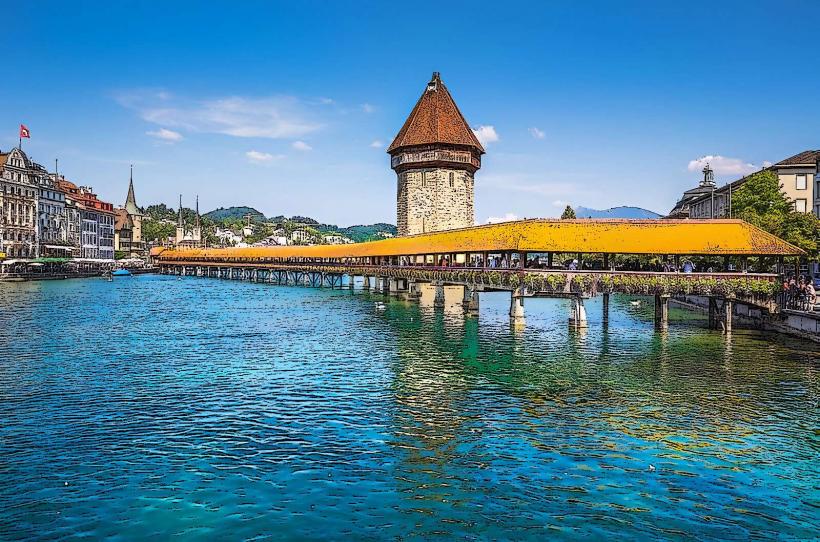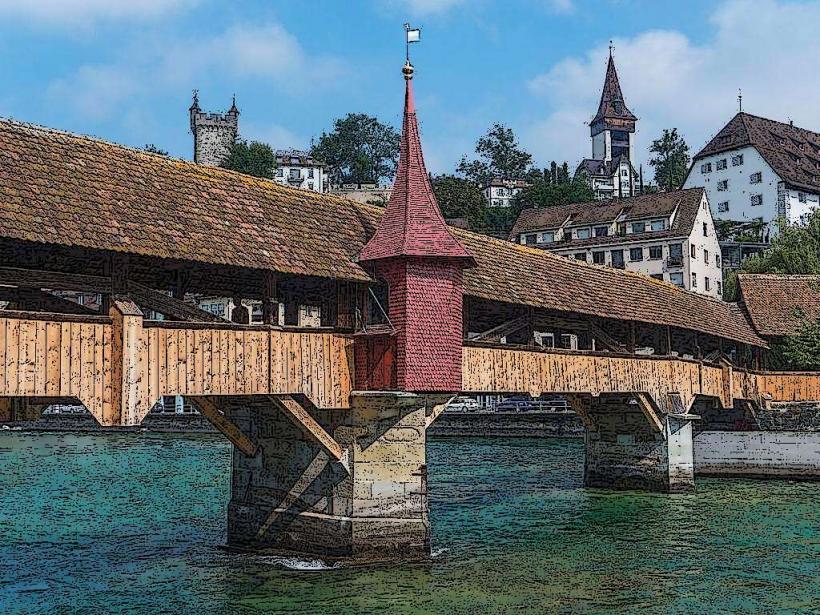Information
Landmark: Richard Wagner MuseumCity: Lucerne
Country: Switzerland
Continent: Europe
The Richard Wagner Museum is a cultural institution in Lucerne, Switzerland, dedicated to the life and works of the famous German composer Richard Wagner. The museum is housed in the villa where Wagner lived for several years and is an important destination for those interested in his music, his legacy, and the history of classical music.
1. Overview
- Location: The museum is located on the Wagner Villa, situated on the shores of Lake Lucerne, in the area of Tribschen, a district of Lucerne. The villa’s picturesque location offers visitors stunning views of the lake and surrounding mountains.
- Founding: The Richard Wagner Museum opened in 1976, and it is located in the villa where Wagner lived from 1866 to 1872. During his time in Lucerne, Wagner composed several significant works, including parts of his operatic masterpiece "Der Ring des Nibelungen".
- Museum Purpose: The museum aims to honor Wagner's time in Lucerne and provide insight into his creative process, his relationships, and his legacy. It showcases various artifacts, personal items, and documents related to Wagner’s life and works.
2. Historical Significance
- Wagner’s Time in Lucerne: Richard Wagner moved to the Wagner Villa in 1866, following a period of political exile and financial instability. He spent a peaceful and productive time in Lucerne, where he completed some of his most notable works, including parts of "Die Walküre" and "Siegfried", two operas from his "Ring Cycle".
- Influence on His Music: Lucerne had a profound impact on Wagner’s compositions. During his stay, he was inspired by the natural beauty of the area, including the surrounding mountains and the tranquility of Lake Lucerne. It is said that the region influenced some of the grand landscapes depicted in his operas.
3. Museum Exhibits
The Richard Wagner Museum features a variety of exhibits that explore both Wagner's personal life and his creative output. The exhibits are divided into several themes:
- Personal Artifacts: The museum houses many personal items belonging to Wagner, including letters, photographs, and manuscripts. Visitors can see objects that belonged to the composer and learn more about his daily life during his time in Lucerne.
- Wagner’s Compositional Process: The museum provides insight into Wagner’s work habits and creative process. It showcases drafts, sketches, and handwritten manuscripts of his operas, allowing visitors to explore his music at a deeper level.
- Family Life: Wagner was married to Cosima von Bülow, the daughter of composer Franz Liszt, and the museum includes exhibits about his family life, relationships, and the people who influenced him, both personally and professionally.
- Wagner’s Legacy: The museum also delves into Wagner’s lasting impact on music, culture, and the arts. His works, while controversial during his lifetime, became enormously influential in shaping the course of Western classical music. The museum explores both his successes and the criticism he faced during his career.
4. Richard Wagner’s Legacy
- Controversy: Wagner remains a divisive figure in classical music due to his outspoken views on politics and his antisemitic statements. While his music has been hailed as some of the most innovative in history, his political views and his association with Nazi ideology have led to complex discussions about his legacy.
- Musical Influence: Wagner is renowned for his contributions to opera, particularly his development of the leitmotif (a recurring musical theme associated with a specific character, place, or idea). His work has influenced a vast array of composers, including Gustav Mahler, Richard Strauss, and even film composers like John Williams.
- Bayreuth Festival: Wagner’s legacy is most celebrated in Bayreuth, Germany, where the Bayreuth Festival continues to perform his operas every year. The Wagner Museum provides visitors with a deeper understanding of his vision for this festival, which was founded by Wagner himself in 1876.
5. Museum Experience
- Architectural Setting: The Wagner Villa itself is an architectural gem, reflecting the 19th-century style of the period. The villa was originally built in 1866 and offers an intimate view of Wagner’s life. The house and its rooms, which have been preserved with period furniture and decorations, create an immersive experience for visitors.
- Exhibits and Collections: The museum’s collection includes manuscripts, sheet music, musical instruments, letters, and photographs. There are also multimedia exhibits that offer visitors a chance to explore Wagner’s music in depth, as well as his influence on the arts.
- Gardens and Lake Views: One of the highlights of the museum is the beautiful garden surrounding the villa. The garden offers breathtaking views of Lake Lucerne and the mountains, providing a serene atmosphere that is believed to have inspired Wagner’s work during his time there.
- Temporary Exhibitions: In addition to the permanent collections, the museum frequently hosts temporary exhibitions related to Wagner’s works, his contemporaries, and the cultural context in which he lived and composed. These exhibitions provide a more in-depth exploration of Wagner’s multifaceted career.
6. Visitor Information
- Opening Hours: The museum is typically open every day of the week, though it may be closed on holidays. Visitors are encouraged to check the official website for up-to-date information on hours of operation.
- Admission: There is an entrance fee to visit the museum. Admission prices vary depending on age and group size, with discounts available for students and seniors.
- Accessibility: The museum is accessible to most visitors, including those with limited mobility. However, it is recommended to check the museum’s website or contact the staff for specific accessibility information.
7. Conclusion
The Richard Wagner Museum in Lucerne is a must-visit for anyone interested in the life, works, and legacy of this influential yet controversial composer. The museum offers a unique opportunity to explore Wagner’s time in Lucerne and gain a deeper understanding of his music, creative process, and personal life. Whether you are a Wagner enthusiast, a lover of classical music, or simply curious about one of the most important figures in the history of Western music, the Richard Wagner Museum provides an enriching and thought-provoking experience in the heart of Lucerne.


